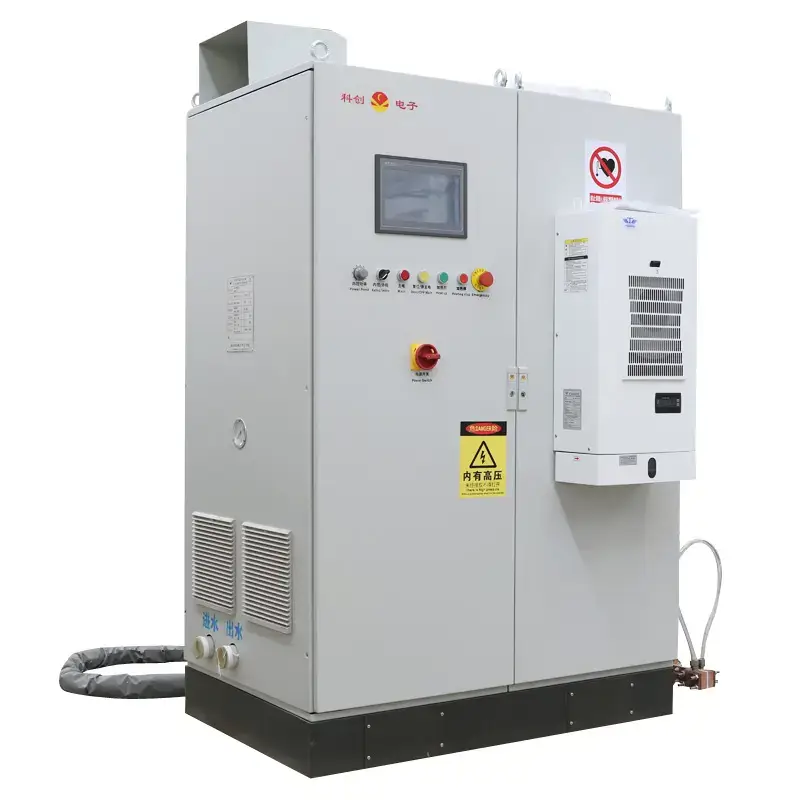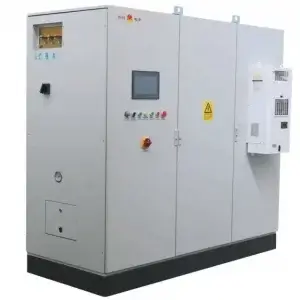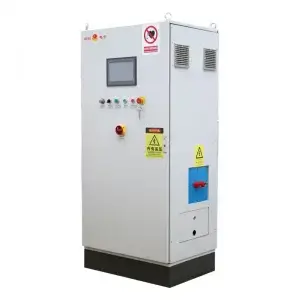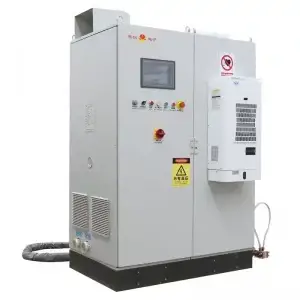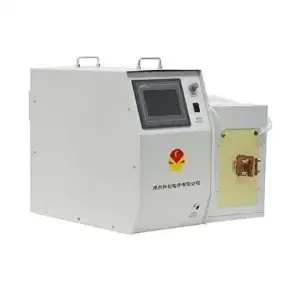What is a Ball Stud Induction Hardening Machine?
A ball stud induction hardening machine is specialized industrial equipment designed to enhance the surface hardness and wear resistance of ball studs, ball sockets, and similar mechanical components using induction heating technology. It typically features a vertical structure with dual-station, four-station, or eight-station configurations, where induction coils move vertically to perform full-surface induction quenching on ball pins.
Key Features & Capabilities:
-
Application Scope:
Ideal for surface induction hardening of automotive ball pins, ball studs, ball sockets, and other precision mechanical parts, widely used in the automotive, aerospace, and heavy machinery industries. -
Advanced Control System:
- Equipped with a CNC (Computer Numerical Control) system for precise automation of the hardening process.
- Optional specialized parameter management and monitoring systems enable real-time tracking of process parameters (e.g., temperature, heating time, coil movement speed).
- Provides functions for recording process data and querying historical records, ensuring traceability and quality control.
-
Power Supply & Operational Efficiency:
- Integrated with a digital transistor induction heating power supply for high-efficiency, energy-saving performance and stable frequency control.
- A human-friendly HMI (Human-Machine Interface) allows intuitive operation and quick parameter adjustment.
-
Structural Design:
- The dual-station vertical CNC quenching machine tool (also available in multi-station variants) is optimized for both single-piece prototyping and mass production of automotive ball studs/sockets.
- Features a rigorous mechanical structure for reliable motion precision, combined with ergonomic design for easy maintenance and operation.
Advantages:
- Ensures uniform hardness distribution and consistent quality across batches.
- Reduces production downtime through automated, multi-station processing.
- Is compatible with diverse part geometries, offering flexibility for different induction hardening requirements
